#i love u so much star
Text

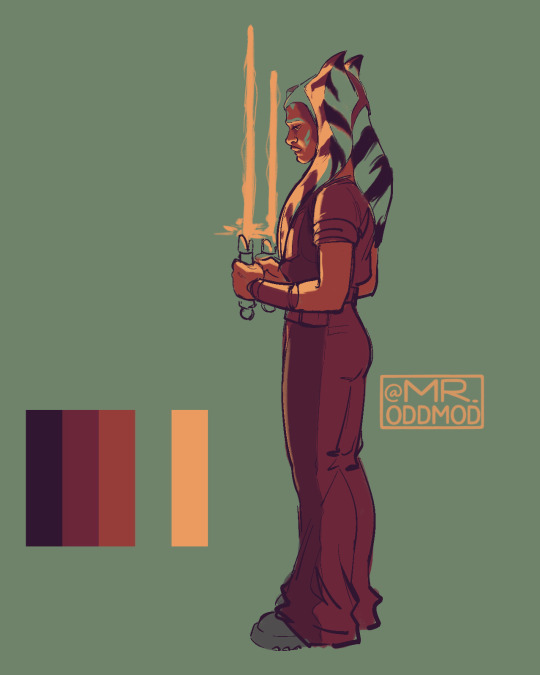

tried the blind color palette challenge a few times with some suggested characters :))
#blind color palette challenge#blind color palette#star wars#the clone wars#commander wolffe#ahsoka tano#ahsoka#arc trooper echo#arc trooper fives#tcw#tcw wolffe#tcw fives#tcw echo#sw tcw#star wars the clone wars#i had so much fun with these!!!#might make more i’m not sure yet#ive gotten a few more fun suggestions#and i think i’m gonna make the wolffe one a print!#i really fell in love with it while making it#anywhooooo#bye thank u#mods art#mods draws#my art
3K notes
·
View notes
Text


what's a woman with nothing left to lose?
[id in alt]
#star wars#mirialan oc#star wars oc#jedi oc#jedi#nibeul art#tmw you lose pretty much everyone u care about so u dedicate the rest of ur life to revenge against the empire#I love bitter women!!
2K notes
·
View notes
Text


you're lovely in ways that i just can't explain
testing out new brushes w some lmhs itfs nape kisses :>
jjk atla!au with @philosophiums
#my art#jujutsu kaisen#jjk#itafushi#itadori yuuji#fushiguro megumi#fanart#jjk fanart#jjk atla!au#atla!au: art#atla!au: illust#lmhs#THESE BRUSHES R LIKE CRACK TO ME I LOVE THEM#i.... paid for them.... which i normally never do#but i talked myself into it bc i figured i like them enough and they will probably get enough use to justify the $9 price tag#and im SO glad i did they were worth every gd CENT TH TEXTURE#chalky oily pastely chunky god i cld EAT IT#oh ya the itfs#fr once not much 2 say rly just a tender moonlit moment ??? honestly they r just my vessels (HAH) th real stars r the brushes#this lighting is the closest u will see me get to blue eyed megu btw. this is as much as i am willing to compromise on#also i finally managed to get the Blue Shading On Pink to look right! i love th way it looks sm but its a Hard combo 2 pull off fr me :'>#....lmhs rly pushing the hina use blue agenda i just realized#though ig that rly is just on atla for being so colour coordinated :')#also caption ! radiohead by nightly.....itfs song.....if u care........#EDIT FRGOT THEIR SCARS I NEED TO SLEEEEPPPP#smh fake fan of our own au :((((
594 notes
·
View notes
Text

HAPPILY PHOREVERAFTER 💗
#“amelia this is two weeks late” you gotta forgive me ive been fiddling with it for forever before deciding no fuck it. It’s fine#devan wedding you were the fucking EVENT OF THE CENTURY no one else will ever compare baby!!! this was MY royal wedding#yes i wore a tux for it. obviously. i care very much about these sims and have been waiting FIVE YEARS for this#GOD WHEN THEY COME BACK AND DEVAN GET THEIR JAPAN HONEYMOON……………#dan and phil#dnp#dan and phil games#dan howell#phil lester#dab howlter#evan pancakes#dil howlter#tabitha casper#dalien howlter#eliza pancakes#bob pancakes#(bob you were the star of the show. love u king)#ive been rewatching all of the sims from the beginning lately so like. expect more dnp sims 4 stuff later honestly
870 notes
·
View notes
Text


#i love her so much stfu#ahsoka#ahsoka series#ahsoka spoilers#rosario dawson#star wars#starwarsedit#ahsokaedit#the camera focusing on hyuang instead of ahsoka or sabine on the second gif CRIMINAL love u hyuang#ahsoka tano
1K notes
·
View notes
Text
my muse

#rui draw smth#ensemble stars#enstars#ensemble stars fanart#arashi narukami#i love her. very much#i have a lot of favorite characters. but little comfort characters#happy to announce arashi is one of my biggest comfort characters gfdsgfdsg#i never was deep in the enstars lore. she just makes me so happy with simply existing its insane HAHAH#lov u nacchan never stop being urself
220 notes
·
View notes
Text
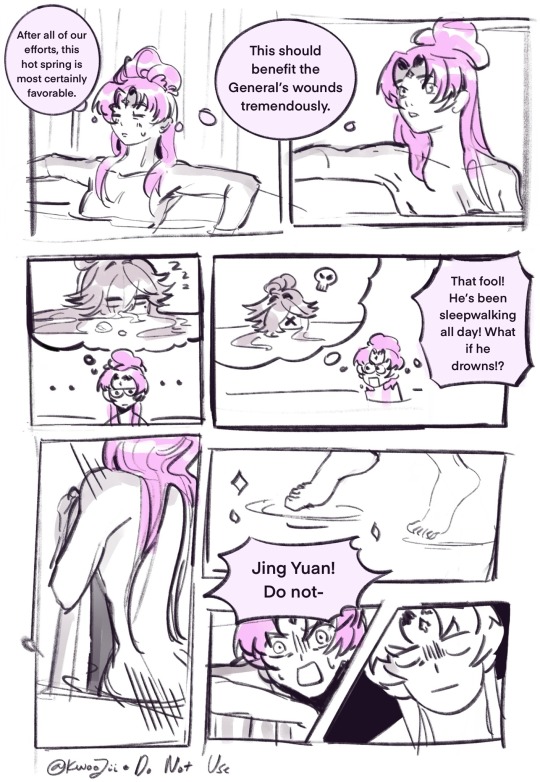
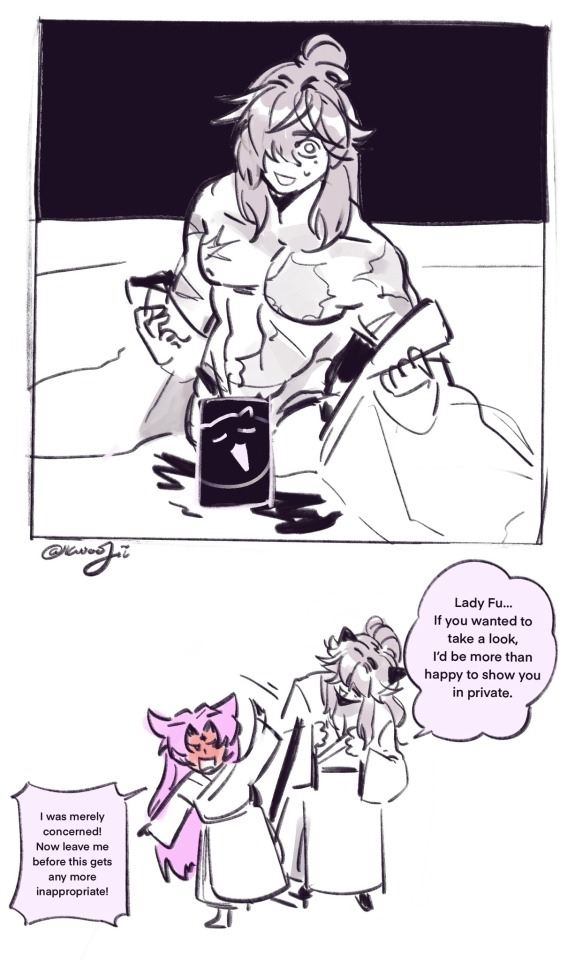
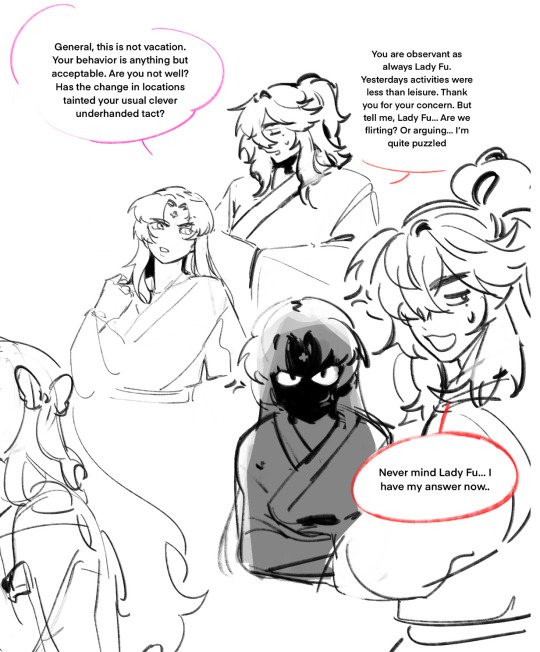
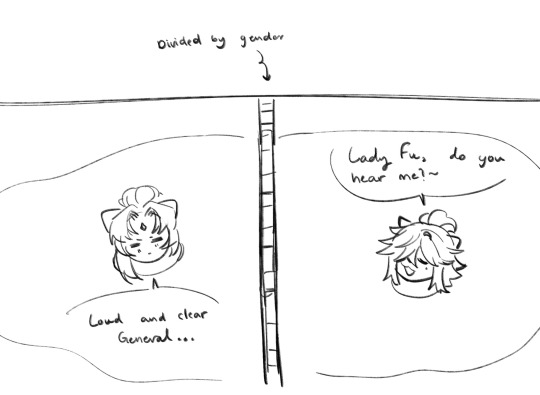
hot spring adventures
#hsr#honkai star rail#jing yuan#fu xuan#jingfu#hsr fanart#my art#they’ve been rotating in my head uuuu#I care so much about how fu xuan may come off harsh but she actually cares so much about others#and jy forever the troll but still extremely human#strong characters on their own ✅#fun dynamic ✅#so much to bounce off of ✅#and they’re both gorgeous ✅✅✅✅#but only about 120 fics#thank you jingfu soldiers I love u#feeding me#also the t4t headcanons thank u jyfx nation you are my ppl
357 notes
·
View notes
Text




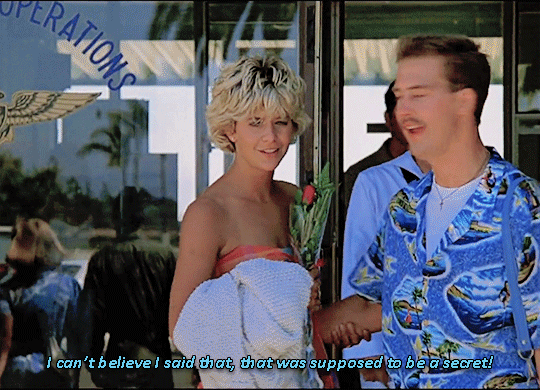
I told her you don't even have a woman here, and you know what she said? "Well, he probably doesn't have one, he's got eight!"
↳ Top Gun (1986); dir. Tony Scott
+ Bonus:

#top gun#topgunedit#pete maverick mitchell#nick goose bradshaw#top gun gifs#stars gifs#mine#stars tg edits#ajsgfjfhjg the way this scene tells u so so much abt their found family dynamic already...... im love them <3#the way that goose n carole look at each other. in the last gif. akdjfkghgg im ded yall#the way this scene tells u that maverick is clearly the Fourth Member of This Family#it is just everything tbh#these gifs are not objectively good but i sorta liked the purpley blue coloring and had a feral#desire to create so. humor me lmao#i havent made gifs since like 2019 and the standards were Not That High back then so Be Kind akdhjfhg#<3
725 notes
·
View notes
Text

Currently in love with this fic: https://archiveofourown.org/works/58602034/chapters/149311126 and decided to make some art of it <3
#gravity falls#book of bill#bill cipher#ford pines#stanford pines#billford#ao3#ao3 fanfic#reflection(up or down?)#scalene cipher#euclid cipher#euclydia#based the ‘house’ off flatland#bill is looking up#a little hard to tell when literally the whole piece is in 2d#fords side was my favourite part to color#bill is at the edge of his world which is like the end of a piece of paper#that’s why that line is there#I love star brushes so much#if u couldn’t tell#the doctors in this fic are lowkey making me understand why Bill would wanna prove them wrong even at his worlds expense
160 notes
·
View notes
Text








—Who are you looking for?
—Er... I'm looking for my boy– ... er, I mean, the president's secretary.
JJ Rathasat Butwong as JULADIS & Fong Bovorn Kongnawdee as CHAN
—SUNSET X VIBES · Episode 2
#sunset x vibes#sunset x vibes the series#sunsetxvibes#jjfong#jj rathasat#fong bovorn#juladis x chan#sunsetxvibesedit#thai bl#thai drama#bl drama#bl series#my edits.#JJFONG NATION WE WON LET'S GOOOOO#they've been married for 5 years#i love them so much#so so so much#thank you star hunter i owe u my life#i need a moment#i need to lie down
262 notes
·
View notes
Text
i just want to mark up dr ratio’s pretty little body, his probably flawless skin coloured red with bite marks, almost purple from bruising. how pretty his butt would redden after just a few spanks, a cute blush on his pale skin.
he’d try his best to swallow down the whines that threaten to escape, forcing himself not to look away as if it admits defeat. but that’s fine, because you’d prefer to look into his eyes as you push yourself into him. excruciatingly slow and bigger than what you told him; your grip keeps him from turning away, shuddering breaths as he feels his walls stretching to accommodate the size.
“you lied,” his voice quivered, eyes flickering down between your bodies and back up to your piercing gaze.
“just because the truth isn’t what you expected doesn’t mean it’s a lie,” you laughed. “veritas, you know that.”
he grits his teeth, sucking in air when you push the remaining length fully into him, relishing in the way he struggles to get used to the feeling. but you don’t give him time, instead pulling out and thrusting back in in one fluid motion. the high-pitched moan that escapes his mouth surprises even the Guild member himself, an arm flying up to cover his mouth.
“well,” you breathed out, voice filled with amusement, “you would’ve known—”
a wicked smile on your lips as you thrusted your hips, again and again, “that the arrogant.”
“self-centred.” another hard push.
“doctor.” and another.
“veritas.” and another.
“ratio.” a final thrust directly hitting his prostate, the throbbing bundle of nerves sending shocks up his body. every buck of your hips eliciting yet another whiny moan, shaky breaths as he tries to compose himself to no avail. and finally, you give him a break, cock pressed deep inside him while the doctor squeezes his eyes shut.
“could make such cute sounds,” you sneered, ripping his arm from over his face to expose how red he’s gotten.
for all his intelligence and knowledge gathered from his studies, veritas ratio could not utter a single word against you—afraid that the only thing that would leave his lips is begs for you to keep going.
but his hips trembled terribly, his walls twitching and squeezing around you. you didn’t need words to know how badly he ached; his body was honest enough, with the way his cock leaked a puddle of precum onto his belly already.
slowly, you started moving again, dragging against his sensitive walls. relief floods his face at the crumbs of stimulation, already feeling the familiar heat in his lower belly building up quickly.
his mouth hangs open, panting heavily as he nears the high he so badly craves. with hands nearly tearing the sheets, the venerable doctor arches his back, toes curling tight as a searing heat fills his lower body. the whimpers that left his throat are barely registered, rapidly losing control of his own body with every push of your hips. he grits his teeth and…
nothing.
he nearly chokes from the anticipation, and now it’s been violently ripped from him as all traces of your touch leaves his body. the timing was perfect. his cock drips with cum and yet his body felt cold, twitching.
you watched on with a cruel chuckle; how he writhes on the bed, how pathetic he looks after having his orgasm ruined. a slap to his still hard and aching cock jolts him back to reality, wondering just what else do you plan to do to him.
#anyway#just ignore that the first paragraph has almost nothing to do with the rest of the post#i got distracted by other thoughts#honkai star rail#dr ratio#sub dr ratio#dom!reader#the picture u get when u e6 is so jskfjskfksnfkjx#i want to write smth about him in the bathtub bc he loves it so much#and like i can feel an idea tickling the back of my mind#but i just can’t really grasp it yet it’s not coming to me#but i feel like there’s smth really good#fuck i just want to bend him over SO BAD
500 notes
·
View notes
Text




me when nico with scars me when flirty solangelo me when this book ruins my life mme when
#i just love them so much FUCK#this book made me so happy#idgaf what yall tumblr bitches have to say i loved it so much#solangelo u will always be famous#tsats spoilers#the sun and the star#solangelo#nico di angelo#will solace#pjo#percy jackson#percy jackson and the olympians#livsmessydoodles#livsmessydoodlez#pjo art#pjo fanart#fanart
3K notes
·
View notes
Text
i'd buy a hundred copies ...❤️💚

#madara mikejima#mikejima madara#enstars#ensemble stars#femstars#venus.art#i love u so much mama.... u r my favorite she/he lesbian......🫶
564 notes
·
View notes
Note
If you draw my silly barrissoka text post please show me 😄

it took a bit longer to get to it but i finally drew it! please i loved this idea sm and it was soooo fun to draw! thanku sm for the permission to draw it! (I LOVE THEM SO MUCH THIS IS CANON)
You can find the original post here btw!
#i loved drawing this so much u have no idea#im so normal#i cant#barrissoka my loves#barriss offee#barrissoka#star wars#ahsoka tano#my art#tales of the empire spoilers#star wars tales of the empire#tales of the empire#ahsoka and barriss
194 notes
·
View notes
Text
True knowledge exists in knowing you know nothing || Dr. Ratio & Socrates
Okay, I legitimately laughed out loud writing that title, but listen. LISTEN.
Ratio's inspirations derive from many sources; from referencing Archimedes's brain-blast in the tub, to being doomed to have his head bonked by Newton's apple ad infinitum in his idle animation, to his ultimate line ('esse est percipi' / 'to be is to be perceived') a direct quote from Berkeley on Idealism - it's apparent that his design nods towards scholars across time periods rather than being a direct parallel to a singular academic.
Nevertheless, just for fun, I've been rotating Ratio and ancient greek philosophers around in my head and have had a great time chewing over how parallels Socrates in particular. I am in no way saying that Hoyo even thought about Socrates while they were designing Ratio, but I thought I'd share my thoughts. I think there are some worthwhile parallels to be drawn that touch on all aspects of Ratio's own philosophy regarding ignorance, the value of knowledge, and his deep appreciation of life. So, let's get into it.
Ratio is interested in humanity and curing 'ill minds with knowledge', that 'to turn a blind eye to the folly of others is not an etiquette, but a wicked worldly practice.' Ignorance is a disease - this is a concept that can be viewed through a Socratic lens. Socrates believed that that virtue and knowledge were impossible to separate from one another, and that virtue could be developed through acquiring knowledge and insight. If knowledge is virtue, then ignorance is vice. In Socrates's mind, no one would rationally choose to do something bad. People might choose to do bad things, but this is rooted in their own perception of the world - as in, someone would only choose to do something bad (for the world, or for themselves) because they believed (erroneously) that it was the right or good thing to do. To Socrates, the cure to this was knowledge: 'There are two kinds of disease of the soul, vice and ignorance.' & 'What does most harm in the world is not sinfulness but ignorance'.
To Ratio, 'If ignorance is an ailment, it is the duty of the scholars to weed it out and heal the universe'. He views his own ignorance as 'filth' that must be cleansed through methods such as reading. He also views knowledge as a method for humans to overcome their problems - 'Another day has passed. If your problem still hasn't been solved, is it possible the problem is you?' & 'You look distressed. Is something troubling you? if so, you can figure it out for yourself.' These statements sound harsh, but they also clue us into Ratio's philosophy - that through self-examination and improvement, one can overcome one's ailments.
Socrates was also known for being a trouble-maker, he was abrupt and tactless and did not care for someone's social standing nor decorum. He was also known for using what is now called the Socratic method, asking a series of questions that ultimately seek to show contradictions in the beliefs of those who posed them, and to move systematically towards a hypothesis free from contradiction. Socrates rarely made assertions himself - after all, he had no wisdom of his own. But he could interrogate others in order to expose their own foibles, much to the embarrassment and annoyance of those around him. He was once described as a 'gnat' chewing on the 'lazy horse of Athens', causing it to wake up and spring to life due to his persistent gnawing and prodding. Ratio also employs the Socratic method - 'I'm asking questions' - and also adopts sophist tactics such as playing devil's advocate and taking opposing sides (with both himself as seen a story quest, and with others as we see with his texts urging us to take up a side so he might debate us). Through questioning and interrogation, upsetting what we consider social convention and norms, we can dispel contradictions and thereby come closer to some form of truth.
To add to this - as highlighted in the replies below - Ratio’s skill ‘intellectual midwifery’ is a reference to the Socratic method. The idea being that Socrates helped those around him give birth to the knowledge that was already within them, rather than treating his students minds as empty vessels for him to fill with his own answers. Again this is beautifully echoed in Ratio - he doesn’t want to tell you how to live your life, he wants you to work out for yourself what it is you need, thus empowering oneself through self-examination and questioning.
Socrates did not believe in writing anything down. He believed that face-to-face communication was a far more effective way of communicating knowledge - which means, unfortunately, what we know of Socrates is primarily derived from secondary sources. Much of what we know about him today comes from Plato's dialogues, and Plato was known for liberally exercising artistic license.
Although Ratio is not dead, I find it interesting that his character story is told exclusively through secondary sources. To quote - '…There are no less than eight documentaries detailing his legendary exploits, and over a dozen memoirs about him. However, despite the plethora of commentaries, none of them seems to provide a compelling perspective.' It's as though there are no surviving fragments penned by Ratio's hand and all we have to go on is through the lenses of other people. This challenges us, perhaps, to try to think about our own interpretation of Ratio since secondary sources cannot be taken as a wholly unbiased account - and once again employing the Socratic method and empowering the reader to come to their own interpretation.
While Socrates left no writing behind, he was interested in spreading knowledge. Socrates spent most of his life in Athens, a city that was, during his lifetime (~470-399 BC), a hotpot of scholars, wisemen and philosophers. Athena, the Greek god of wisdom, was named after the city - her symbol the owl that is also appropriately perched on Ratio’s shoulder. Also in Athens at this time where the sophists. The sophists were a class of intellectuals who were known to teach courses in various subjects - but often for a high fee, and generally centred around the idea that persuasion and the use of knowledge as a tool was more important than wisdom or truth itself. There's some debate about whether Socrates could be characterised as a sophist himself, but, crucially, he is characterised as refusing to take payment for his teachings. He was born a plebeian (perhaps you might describe it as a mundane background.) He was known to dress in rags and go barefoot, speaking to and (often antagonising) people from all walks of life, preferring the marketplace as a center of debate than palaces or courtrooms. I can't help but think of the sophists as similar to the genius society (or at least Ratio's depiction of them in contrast to himself), cooped up in ivory towers and gatekeeping knowledge to the most privileged. He doubts if Herta's talent is always helpful to others, he compares Screwllum to a 'monarch'. Then again, the sophists may in fact be a bit of a parallel to the Intelligentsia Guild - from Ratio, 'when someone is willing to listen to knowledge that is being disseminated and circulated, a price is created'.
Socrates (or at least the Platonic depiction of Socrates) was at one time declared the wisest man in Athens by the Oracle of Delphi. Socrates balks at this assertion - how can he possibly be the wisest man in Athens when he in fact knows nothing at all? This was not a claim made of modesty - he truly believed that he had no wisdom, that he was unsure what 'wisdom' itself even was. Ultimately, Socrates concludes that the only way that the Oracle could be correct is that by actually acknowledging that he knows nothing he paradoxically is the wisest man in Athens. All wisdom, therefore, is rooted in wondering, with wondering only possible if one is open to admitting one's own ignorance.
What I love about all of this in relation to Ratio is that Ratio styles himself as a mundanite. The Intelligensia Guild advocates that 'all knowledge must be circulated like currency' and accepts 'all beings… who seek to learn'. Ratio has no time for the satisfied self-styling of intellectualism, he himself states that 'to speak knowledge, we must first make people realise their own folly.' No one is above criticism in this regard, even himself - again, to quote 'Whenever someone agrees with me, I feel like I must be wrong.' Again, I feel as though he would resonate with Socrates here: 'Smart people learn from everything and everyone, average people from their experiences, and stupid people already have all the answers'. With Aventurine, he is quick to mock his appearance as over-the-top and vapid - once again making it clear his distate for vanity and hollow displays of showiness (albeit he may have been acting for Sunday's sake here. Also, no comment about this coming from a man who runs around in a toga, lmao)
Equally, with Aventurine, it is clear that Ratio is willing to learn from him - he apologises when he offends, he abhors his methodology and yet he still relies upon it and trusts in Aventurine's plan, he is drawn to him in some ways precisely because he is so different to himself. Aventurine (at least styles himself) as impulsive to Ratio's slow and steady methodology, Aventurine whose learning has been entirely self-made vs Ratio who has spent his life in classrooms, Ratio who scoffs at Aventurine's favourite games of chance yet adds slot machines to his simulated universe.
And to Socrates, the experience of aporia – in all of its discomfort and disruption – is the very catalyst of wonder, and that wonder was not just the root of wisdom but also the way to live a good and happy life. There is something beautiful in this to me, and this extends to Ratio. Ratio fundamentally cares about life. For all his brashness, his lashing out against 'idiots', his harsh demeanour - he wants people to live good lives, he wants to contribute to the good of humanity - all people, even those he is annoyed by, he cares so profoundly and absolutely about life. The entire reason why he is obsessed with wisdom and learning is not to exalt or elevate himself, not as some kind of ritualistic expression of piety towards a deity, but it is instead an expression of devotion towards life itself. Ratio has a strict work out routine not so that he can show off his body, but because living healthily is living well and working out is a component of that. Even the way he fusses and worries about Aventurine, someone he is pointedly irritated by, reveals how deeply his care runs. So so much of his character is centered on caring for life, even if it is not immediately obvious.
Finally, I'd like to highlight some ways in which Ratio is not like Socrates. First of all, Socrates was repeatedly described as 'ugly' by fellow philosophers Plato and Xenophon - this is contrast to Ratio being repeatedly described as 'handsome'. This is an interesting subversion to me (albeit likely an indulgent one) as in both cases both men attempt to distance their physical appearance from the weight of their words. Ratio wears the bust for many reasons, but way to view it is that he is attempting to stop his appearance from bearing any influence in the subject of debate.
Socrates was also said to be blessed by a divine touch, and as we know, this is something that agonises Ratio as Nous has not yet turned THEIR gaze towards him.
Lastly, Ratio has - thankfully - not yet been ordered by the state to drink hemlock for all his trouble-making and blustering. Though perhaps he may someday be put on trial by the IPC if the theories that he is working alongside Aventurine to undermine the corporation are true - we will just have to wait and see.
Thanks for reading my little ramble. I'd be super interested in anyone's thoughts if they'd like to share, but regardless, I'll leave off on some of my favourite wee quotes from the Rat man:
'Even a life marked by failure is a life worth living - it is only in moments of solitude and despair, when help is absent, that fools grasp how to pick themselves up.'
'Do stay alive. I wish you the best of luck.'
#dr ratio#ratio#aventurine#hsr#honkai star rail#my witterings#i love the rat man so much idk#much of the information i describe about Socrates comes from the podcast History of Philosophy without the Gaps#which I highly recommend if this is your kind of thing lol#but mostly I just wanted to have fun spinning my hyperfixation around lol#Also I make a few declarative statements throughout this but know that I do not claim to be a scholar of greek philosophy lol#please check the verasity for yourselves before relying on what I have to say#for I know nothing u see u see? :P#also I just wanna add in that I do NOT think Ratio is a perfect human being#ratio can be hypocritical and cruel and ignorant just like the rest of us#but I adore that too as afterall he is also an expression of humanity#with all its earthy faults
156 notes
·
View notes
Text

MYSTICAL GIRLS!
#never drawing more than 2 ppl in the same drawing ever again i feel ill#BUT WOW! WOMEN!#oh and ALSO!!!!!! the kanata was designed by lumi (cutie-lumi on tumblr) so show her some love if u love the design as much as i do ❤️❤️#femstars#genderbend#rei sakuma#wataru hibiki#shu itsuki#kanata shinkai#enstars#ensemble stars#my art
823 notes
·
View notes